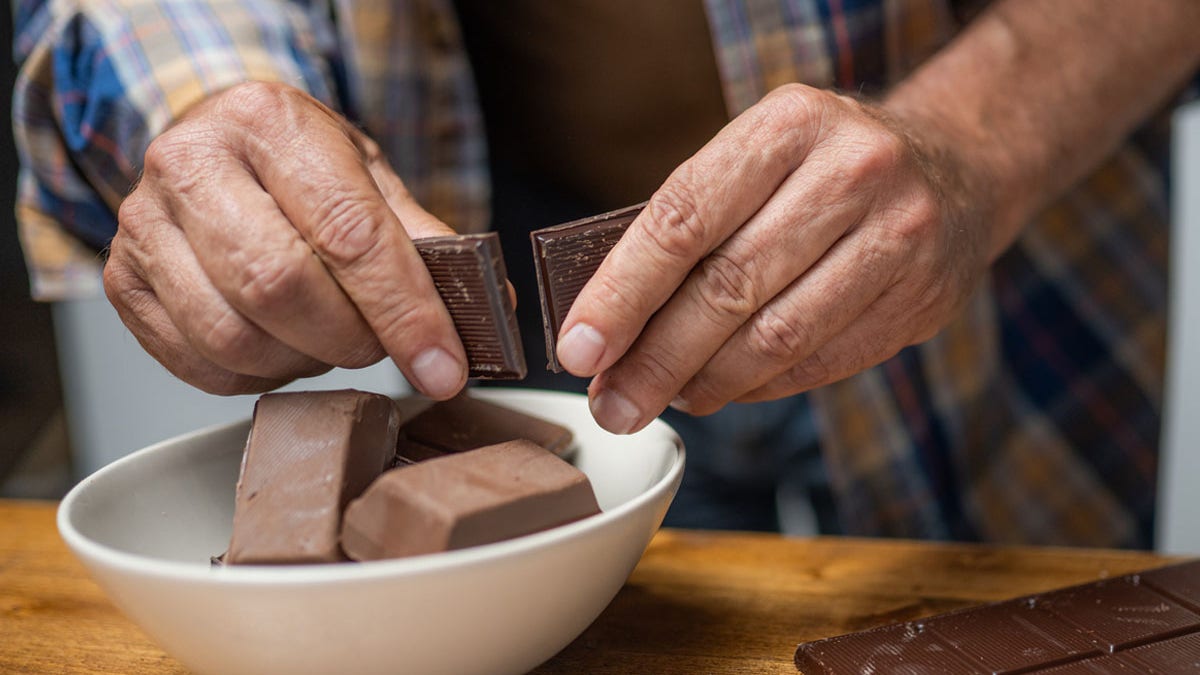Could dark chocolate be a surprising ally in diabetes prevention? A new study from the Harvard T.H. Chan School of Public Health suggests a potential link between regular dark chocolate consumption and a reduced risk of developing type 2 diabetes.
Researchers analyzed data from over 111,000 participants across three large cohorts, all free of diabetes, cardiovascular disease, and cancer at the outset. Participants self-reported their dark chocolate intake and diabetes status. The findings, published in The British Medical Journal (BMJ), revealed that individuals consuming five or more weekly servings of any chocolate type had a 10% lower incidence of type 2 diabetes compared to those who rarely or never indulged. This protective effect was even more pronounced for dark chocolate enthusiasts, with those enjoying five or more servings per week showing a 21% lower risk. Each weekly serving of dark chocolate was associated with a 3% risk reduction.

Lead researcher Binkai Liu, a Harvard doctoral student, attributes the potential benefits to the flavonoids abundant in dark chocolate, suggesting these compounds may offer metabolic advantages.
The Importance of Chocolate Type
Liu emphasized the significance of chocolate type, noting that milk chocolate did not exhibit the same positive correlation. The disparity stems from the differing compositions: dark chocolate boasts high cocoa content and flavonoid levels, while milk chocolate contains added sugar and less cocoa, potentially contributing to weight gain.

Registered dietitian nutritionist Tanya Freirich highlighted the anti-inflammatory properties of flavanols in dark chocolate, supporting the notion that these compounds could contribute to diabetes risk reduction by improving cardiovascular and metabolic health. Another registered dietitian, Erin Palinski-Wade, pointed out that cocoa flavanols can stimulate nitric oxide production, potentially aiding in blood vessel dilation and blood pressure regulation.
Study Limitations and Considerations
While promising, the study's observational nature limits the ability to establish a direct cause-and-effect relationship between dark chocolate consumption and reduced diabetes risk. Liu acknowledged potential confounding factors and the limited generalizability of the findings, given the predominantly older, non-Hispanic participant pool. Palinski-Wade also noted that other lifestyle factors could contribute to the observed association.

Moderation and Balanced Diet Remain Crucial
Liu recommends enjoying dark chocolate in moderation, as excessive consumption of any chocolate can contribute to weight gain. She suggests a few ounces a few times a week as a reasonable incorporation into a healthy diet. Both Liu and Freirich stress that dark chocolate is not a magic bullet and should be part of a comprehensive approach to healthy living that includes a balanced diet, regular exercise, and other positive lifestyle choices.

Consulting with a healthcare professional for personalized advice based on individual health history and risk factors remains essential.








